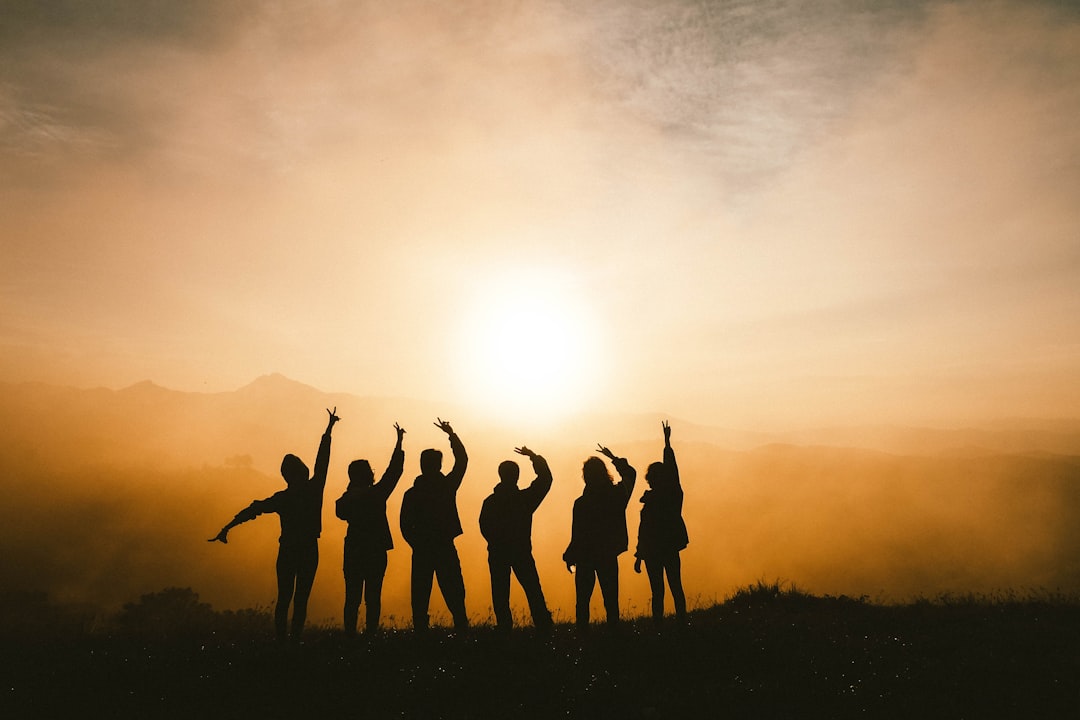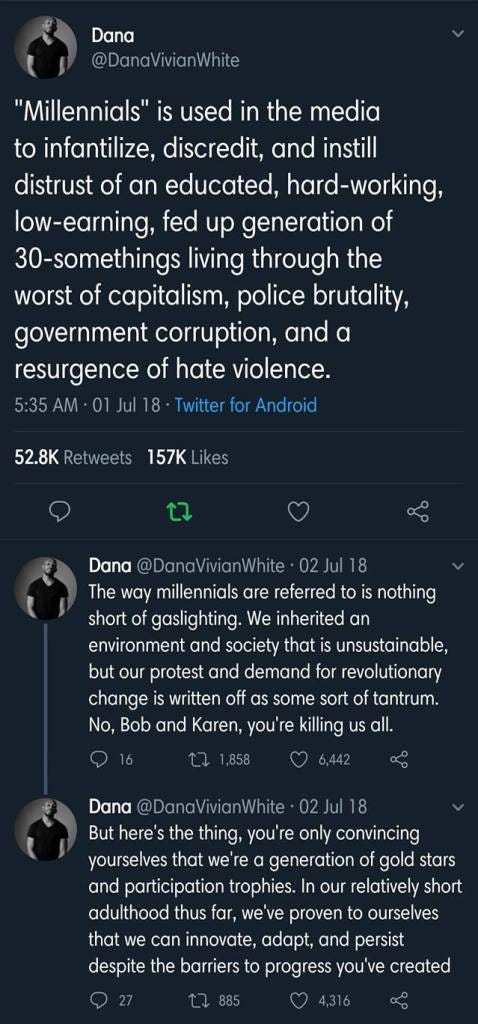They'll Leave Us Behind
Today's youth are growing up in a world not made for them. If we don't pay attention, they will force change without us.

In Embracing Curiosity, I step away from writing about travel to comment on the bigger journey of life, exploring my faith and politics with curiosity and nuance.
The news about the shooting at Columbine High School in Littleton, Colorado broke at my small Nebraska college while I was working towards my bachelor’s degree in education. We helplessly watched the news unfold and wondered what that would mean for us as teachers and for our future classrooms. Those most affected by what happened, students and teachers and families of the dead, quietly mourned and comforted each other. A national call for change quickly dissipated. And schools shootings continued.
Then a shooter went through the hallways of Marjory Stoneman Douglas High School in 2018, killing 17 people. For the first time, the calls for change weren’t coming from parents and lawmakers: they came from students. The students took charge. They organized, they got on social media, they became overnight influencers. They went to the Florida state house and challenged lawmakers. They met with fellow gun violence victims in Chicago and organized a march with satellite marches all over the country, hundreds of thousands participating where they could. And they did all of this before they were eligible to vote for the president of the United States.
When Swedish teenager Greta Thurnberg broke onto the climate change activism scene in 2018, many older adults dismissed her. Conservative pundits wondered why her parents were allowing her to quit her schooling to travel the world spreading the news about climate change and questioned her knowledge because she was so young. People became convinced she was a mouthpiece for liberal surrogates, that she was being used by activist organizations for more nefarious purposes. She even attracted negative attention from the White House, the teenager getting into a Twitter spat with the US president. All of this happened while she made the round of American talk shows, spreading her message of the existential threat facing her generation and demanding action from those in governments around the globe.
This is Generation Z.
I’m pretty well acquainted with these young people. For the last several years I’ve spent my days with the older members of Gen Z and then come home to its youngest members. I have news for everyone.
They. Are. Done.
They’ve sat through active shooter drills and some have watched their friends and classmates die. They have watched their planet burn, the pollution grow, the storms get worse, and the climate change without any indication from leadership that things are going to change. They have been told to accept crushing student debt as the path to a strong future career while seeing job prospects diminish in the current economy. Their anxiety over school, family, and the future is real and in many cases debilitating.
But they are also tired of waiting for the “grown-ups” to figure it out and change things.
Young adults today are taking legislative issues to their state and national representatives. They know their names, they know how to contact their offices, and they are doing so. I couldn’t even be bothered to research the governor’s race when I voted in Indiana in 2004, but these kids are more acquainted with how the system works than I was before my 30s.
And it’s not just Generation Z
Boomers have repeatedly questioned the number of Millennials that are getting into politics, forgetting that not only are older Millennials pushing 40, they are the same age of the people who formed the government they are fighting to be a part of. The average age of the founding fathers was 44 and more than a dozen of them were under 35. Not only is it understandable that they are getting into politics; they should be getting into politics.

And between X and Z, they are determined to create something new because the way things are just not working for them.
They are two generations raised on Harry Potter, the Hunger Games, and Star Wars. They’ve been taught to believe that they can and should be able to demand a better life. They have been trained to see revolution as necessary to have the change that you want. And despite their social media-driven tendency towards adolescent egotism, they are full of empathy for those less fortunate than them.
While Millennials are fighting for a better life for them and their children (if they have even chosen to have children), Gen Z is fighting for a better world. While many of us Xennials were idealistic, we had practical lives to live once we had followed the plan (college, marriage, and babies). Many of us are trying to change the world now that we want a better future for our kids, but our kids and their peers aren’t waiting.
And I’m thankful that they aren’t.
Kids today aren’t partisan. They are complex and curious and seeking answers and solutions. They want change for them and others and they are tired of being told to wait their turn.
And they are willing to learn. On a poverty simulation learning more about homelessness, I watched one student realize that, while her period had been an inconvenience while giving up all of her earthly comforts for 36 hours, it was a regular struggle for women living on the streets. While one a spring break mission trip, I watched teenagers work in partnership with fellow teenagers who did not speak their language but who could still teach them about their country and culture.
While we have reason to be concerned about the rhetoric bombarding them on social media, they haven’t completely lost the ability to think critically. I recently had a student who praised Ben Shapiro and Andrew Yang in the same breath. I’ve had students come back from the March for Life and in discussions of being a pro-life generation, challenged their classmates with how they view and treat pregnant peers. I’ve discussed climate change and pollution with conservative students concerned about the state of our planet but questioning parts of the New Green Deal, all while they discuss their real and informed concerns about their earthly home.
They may need guidance to sift through the nonsense, but many of them have their BS meters turned on “high.”
We are dealing with a generation of young people who spent several months at home. They had plans canceled, they didn’t see their friends, and some have watched their families lose everything. They fearfully watched people get sick, they listened as their elders brushed off concerns about public health, their eyes were opened to the injustices facing their peers, and many of them found their voice.
They may not all get a vote in 2020, but they are watching. They are watching to see whether we look at the big picture. They are concerned that we won’t consider their needs. They are hoping for something better yet to come.
And if we don’t listen to them, they aren’t going to wait another 20 years for people to figure it out. They’ll just do it without us.
Please “like” by clicking on the ❤ and share this post with your friends so that others can also join the journey.


